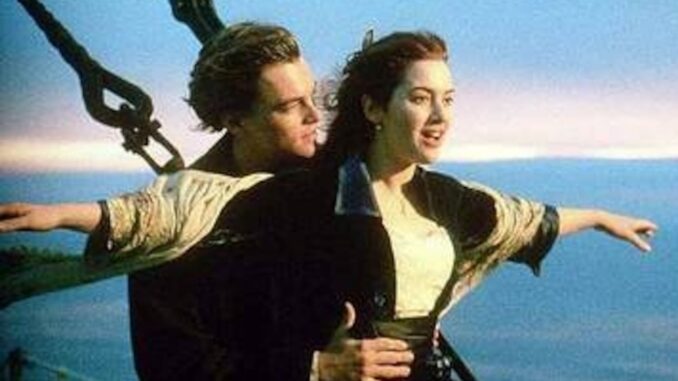
The Iceberg of Regret: Kate Winslet and the Truth About Titanic
For decades, the grand staircase, the ocean vistas, and the soaring soundtrack of James Cameron’s Titanic have captivated audiences, cementing its place in cinematic history. But beneath the surface of romance and tragedy, a long-simmering debate has persisted: Could Jack have fit on the door with Rose? The internet, a breeding ground for passionate opinions, has dissected the physics of the floating debris with relentless fervor. And through it all, Kate Winslet, the star who brought Rose DeWitt Bukater to life, has remained largely diplomatic, deflecting the question with a playful smile. Until now.
Imagine, if you will, the hushed atmosphere of a late-night talk show, the soft glow of the studio lights illuminating Winslet’s face. The host, a seasoned professional, leans forward, a knowing glint in their eyes. "Kate," they begin, their voice a conspiratorial whisper, "the question that has plagued generations… Could Jack have survived?"
A beat of silence hangs in the air. Winslet’s smile wavers, a flicker of something deeper crossing her features. For years, she's walked the tightrope of maintaining the film's integrity while acknowledging the playful absurdity of the debate. But tonight, something feels different. The weight of the Titanic, the years of speculation, the insistent pleading of fans, have finally tipped the scales.
"Okay," she says, her voice surprisingly firm. "Okay, fine. The truth is… yes. Jack absolutely could have fit on that door."
The audience gasps. The internet collectively combusts. Headlines scream: "Winslet Confesses! Titanic Injustice Finally Addressed!" But what follows is far more nuanced than a simple admittance. Winslet elaborates, her voice laced with a mixture of humor and genuine reflection.
"Looking back, it's so clear. The door wasn't exactly overflowing with space. It wasn’t like we were building a raft for ten. But there was definitely room. And let’s be honest," she continues, her eyes twinkling, "Leo, bless his heart, wasn't exactly a lightweight back then. But still…"
She pauses, a shadow passing over her face. "The real truth," she admits, "isn't about buoyancy or wood density. It's about the narrative. It's about the sacrifice. Jack’s death, as heartbreaking as it is, is the catalyst for Rose's transformation. It's the burning ember that fuels her determination to live a full and extraordinary life. If Jack survives, the story, the message, the entire emotional arc, just… deflates."
This is the true iceberg of regret, the one that lies beneath the surface of the icy Atlantic. It’s not about the physics of survival, but the artistic license that dictated Jack’s fate. Winslet's admission transcends the simple 'could he/couldn't he' debate. It acknowledges the power of storytelling, the deliberate manipulation of emotions, and the responsibility that comes with crafting a narrative that resonates so deeply with audiences.
She goes on to discuss the impact of Jack's death on Rose, how it shaped her into the independent and spirited woman she becomes. She speaks of the film's enduring legacy, its ability to evoke empathy and spark conversations about class, survival, and the fragility of life. She emphasizes that Titanic is not just a love story, but a story about resilience in the face of unimaginable tragedy.
Ultimately, Winslet's "admission" is not an apology, but an explanation. It’s a recognition that while the physical logistics may have allowed for Jack's survival, the thematic and emotional needs of the story demanded his sacrifice. It's a testament to the power of cinema to transport us, to move us, and to leave us grappling with questions long after the credits roll.
And so, the truth about Titanic remains complex and multifaceted. It's a story of love and loss, of art and artifice, and of the enduring power of a single wooden door to ignite the passions of millions. While the debate over Jack’s survival may never truly cease, Kate Winslet's honest reflection provides a deeper understanding of the forces at play, reminding us that sometimes, the most powerful truths are the ones that lie beneath the surface, just like the iceberg that changed everything. The real truth is that Titanic isn't just about who could fit on the door; it’s about the impossible choices we make in the face of catastrophe, and the enduring impact they have on the lives we live afterward.